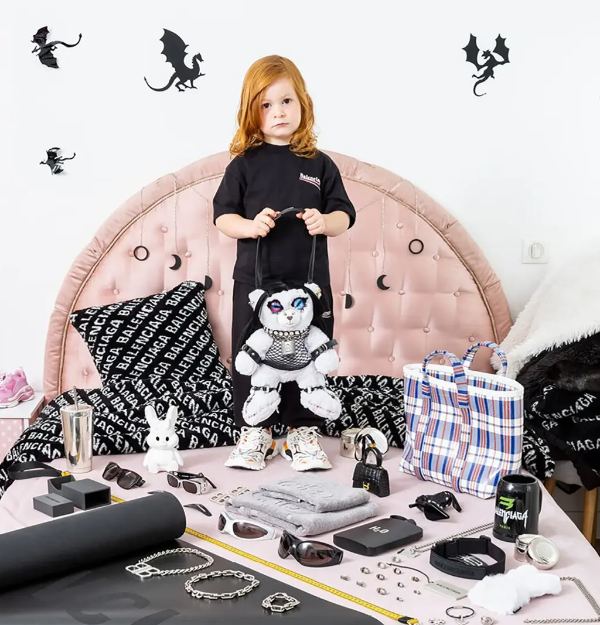Balenciaga, the luxury fashion house that sparked back-to-back controversies with two recent ad campaigns, said it plans to sue the production company North Six for its involvement in designing one of the adverts.
The uproar started when online users saw a page from the 2008 Supreme Court decision United States v. Williams in the backdrop of a $3,000 handbag advertising.
The court upheld a child pornography conviction as constitutional.
Since removed from the company’s website, the advertisement was part of the cooperation between the fashion house and the sporting brand Adidas for Spring 2023.
If it hadn’t been for a disagreement with another advertisement from the brand’s holiday collection earlier this month, Balenciaga fans might have missed the Supreme Court verdict clip.
That ad campaign was also criticized since it featured children clutching cute animals while wearing fishnet tops and leather harnesses and surrounded by flasks and chain necklaces.
Gabriele Galimberti, the famed documentary photographer, filmed the commercial in a similar style (although with less controversial elements) for the “Toy Stories” series.
The billboard fueled accusations that the fashion industry was encouraging child sexual abuse. Social media users and media critics described it as “scary,” “demonic,” and “horrifying.”
Galimberti declared in a statement that he did not influence the objects or models used in the Balenciaga shoot.
“As is usual for a commercial shooting, the direction of the campaign and the choice of the objects displayed are not in the hands of the photographer,” he said.
He remarked that the hate messages he receives “are directed at the wrong people and distract from the genuine problem, as well as criminals.”
Balenciaga apologized for both ads in two separate statements last week and again on Monday, saying first that “our plush bear bags and the Gift Collection should not have been featured with children,” and that all of the props used in the second ad shoot were “provided by third parties that confirmed in writing that these props were fake office documents.”
“They turned out to be real legal papers most likely coming from the filming of a television drama,” the company said, adding that it was internally investigating the incident and exploring ways to work with organizations that combat child abuse.
“We want to learn from our mistakes and identify ways we can contribute. Balenciaga reiterates its sincere apologies.”
On Friday, the brand served North Six and set designer Nicholas Des Jardins with a court summons for their participation in making the second commercial.
Balenciaga alleges North Six utilized papers in the ad “without Balenciaga’s knowledge or consent,” according to the lawsuit. The corporation intends to sue for a total of $25 million in damages.
North Six acknowledged receipt of the summons but declined to comment on the accusations.
According to Balenciaga, “North Six’s incomprehensible conduct and omissions were malicious or, at the very least, exceedingly careless.”
“As a result of [North Six]’s misconduct, members of the public, including the news media, have falsely and horrifically associated Balenciaga with the repulsive and deeply disturbing subject of the court decision,” the court document reads.
Balenciaga has historically straddled the line between edgy and provocative in an industry that has long been accused of putting morality and ethics second.
Fashion and history experts reprimanded the company in 2021 for selling a $1,190 pair of sweatpants with boxers peeking out from the waistband, a style that some believed was a rip-off of Black culture.
Balenciaga was recently slammed for waiting too long to end its limited brand relationships with Kanye West following his antisemitic statements.
Croc stilettos, a $2,000 tote bag resembling the company’s paper shopping bags, and $130 white cotton socks are among the company’s most recent releases.
The brand is well-known among celebrities like as Kim Kardashian, who faced criticism for being hesitant to reply to teddy bear commercials, notably from right-wing media figures.
On Sunday, she declared on social media that she was “re-evaluating” her job as an advocate for the design industry.
“I appreciate Balenciaga’s removal of the campaigns and apology,” she wrote. “In speaking with them, I believe they understand the seriousness of the issue and will take the necessary measures for this to never happen again.”
Others on social media regard the lawsuit as a tactic to transfer blame, which only serves to raise public interest in seeing the advertisement in the meanwhile.

